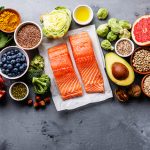In today’s fast-paced world, many individuals are seeking effective solutions to achieve their weight loss goals. While a healthy diet and regular exercise remain the cornerstones of weight management, some people may benefit from the assistance of weight loss supplements. In this comprehensive guide, we will explore the top weight loss supplements that have shown promising results. We’ll delve into their mechanisms of action, research-backed evidence, and potential side effects to help you make an informed decision.
Understanding Weight Loss Supplements
Before delving into specific supplements, it’s essential to understand the role they play in weight loss. Supplements are designed to complement a healthy diet and regular exercise regimen, not replace them. They can provide additional support by boosting metabolism, suppressing appetite, or aiding in fat burning.
However, it’s crucial to remember that supplements are not a magic solution for weight loss. They should be used in conjunction with a calorie-controlled diet and an active lifestyle for optimal results.
Top Weight Loss Supplements
Some of the top weight loss supplements are:
Green Tea Extract
Green tea extract, rich in antioxidants called catechins, particularly epigallocatechin gallate (EGCG), has been widely studied for its potential weight loss benefits. Studies suggest a 3-4% increase in calorie expenditure, translating to 60-80 more calories burned daily for someone on a 2000-calorie diet.
Moreover, catechins like EGCG may help the body burn fat more efficiently by blocking an enzyme that inhibits fat breakdown. This allows the body to access stored fat for energy, potentially promoting weight loss.Green tea extract may also influence appetite hormones, leading to feelings of fullness and reduced calorie intake.
Conjugated Linoleic Acid (CLA)
Conjugated linoleic acid (CLA) is a type of fatty acid found naturally in meat and dairy products. While some studies suggest a slight decrease in body fat, the effects are modest. A review of multiple studies found an average weight loss of only 0.11 pounds per week with CLA supplementation.
Garcinia Cambogia
Garcinia cambogia is a tropical fruit that contains a compound called hydroxycitric acid (HCA), which is believed to have appetite-suppressing and fat-burning properties. A study published in the Journal of Obesity found that participants who took Garcinia cambogia supplements experienced a significant reduction in body weight and body fat compared to those who took a placebo.
Caffeine
Caffeine is a widely utilized natural stimulant that has garnered significant attention as a potential weight loss supplement. Its mechanisms of action are multifaceted, contributing to increased metabolism, appetite suppression, and enhanced energy expenditure.
Numerous studies have explored the impact of caffeine on weight management, with a meta-analysis published in the International Journal of Obesity and Related Metabolic Disorders highlighting its ability to promote modest weight and fat loss when combined with exercise.
Furthermore, research from the American Journal of Clinical Nutrition indicates that caffeine consumption can boost energy expenditure by up to 10% in both obese and lean individuals. The recommended dosage for weight loss purposes typically ranges from 100 to 400 milligrams per day, although individual caffeine sensitivity and potential side effects, such as increased heart rate, anxiety, and insomnia, should be considered.
Caffeine can be obtained through dietary supplements or naturally from sources like coffee, green tea, and yerba mate, which may offer additional beneficial compounds like antioxidants and other plant compounds that can complement weight loss efforts.
Raspberry Ketones
Raspberry ketones are natural compounds found in raspberries that are believed to increase metabolism and promote fat burning. A study published in the Journal of Medicinal Food suggests that raspberry ketones may have a positive impact on weight loss by enhancing the breakdown of fat cells.
However, the National Institutes of Health (NIH) cautions that while raspberry ketones may have some potential for weight loss, more research is needed to determine their safety and efficacy.
Glucomannan
Glucomannan is a type of soluble fiber derived from the root of the konjac plant. It has been shown to promote feelings of fullness and satiety, which can lead to reduced calorie intake and weight loss. A study published in the Journal of the American College of Nutrition found that participants who took glucomannan supplements experienced significant reductions in body weight, body fat, and low-density lipoprotein (LDL) cholesterol levels.
Safety and Precautions
While the supplements mentioned above have shown promising results in various studies, it’s essential to consult with a healthcare professional before incorporating any new supplement into your routine. Some supplements may interact with medications or have potential side effects, especially when taken in excessive amounts or for prolonged periods.
Additionally, it’s crucial to purchase supplements from reputable sources and follow the recommended dosages on the labels. Exceeding the recommended dosages or using untested or unregulated products can be harmful to your health.
Conclusion
Achieving sustainable weight loss often requires a multifaceted approach that combines a balanced diet, regular exercise, and, in some cases, the use of safe and effective supplements. While the supplements discussed in this article have shown potential for supporting weight loss efforts, it’s essential to remember that they should be used as complementary aids, not substitutes for a healthy lifestyle.








